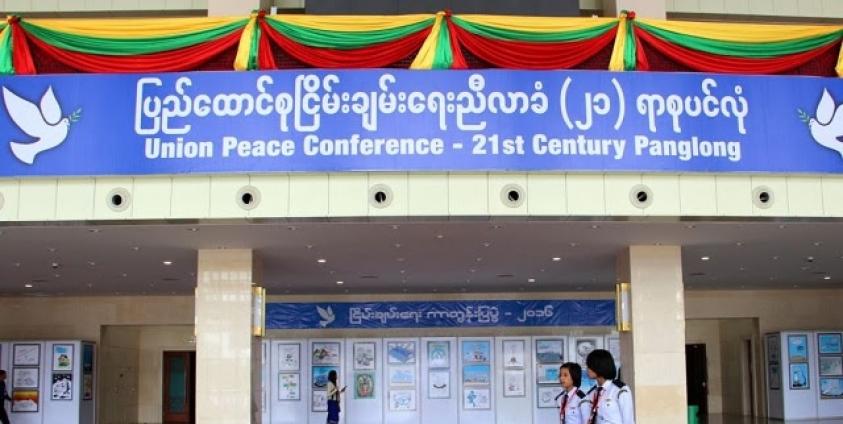Burmese civil society organizations (CSOs) have announced that they will gather for a ‘peace forum’ in Shan State capital Taunggyi next week.
With invitations extended to state-level CSOs from across the country, the forum is scheduled to be held in Taunggyi from 21- 23 February, ahead of a national-level conference in Naypyidaw on 24- 25 February.
According to Min Aung Htoo, an executive member of the CSOs Forum, the agenda at the national forum in Naypyidaw will include three topics: federal economics and finance; the resettlement of internally displaced persons (IDPs); and environmental policies and natural disaster management.
Min Aung Htoo said that the meeting will bring together members of CSOs from different states who are each working to build peace in Burma.
“CSOs will be represented at the upcoming peace talks,” said Min Aung Htoo, referring to the next round of the Union Peace Conference, also known as the 21st Century Panglong Conference (21CPC), which is slated to kick off in Naypyidaw in mid-March.
“Therefore, in order to for us to speak with one voice on behalf of the general public, we need to prepare.”
The CSOs sent a joint-letter to the Burmese government after the first round of the 21CPC, requesting permission to send a greater number of CSO representatives to the peace talks. However, they say, to date they have not had a response.
The peace talks are based on the framework of the Nationwide Ceasefire Agreement (NCA), which limits representation of CSOs.
“We wish to be legitimate representatives at the national-level peace talks,” said Su Su Shwe, a CSO representative from Tanintharyi region. “At national-level negotiations, there are four sectors in play: the parliament and government; political parties; Tatmadaw [Burmese military]; and ethnic armed groups. So, the question is: why not give CSOs fair representation?”
According to Win Htay Kaung Myat, a representative of the CSOs Forum in southern Shan State, 49 CSO representatives will attend the next round of talks in Taunggyi, plus an additional 24 female delegates who are due to debate women’s issues.
“At the 21CPC conference, we are not permitted to directly discuss issues such as cultural heritage,” he said. “There are so many limitations on us. Therefore, we will have to wait and see how much dialogue we can introduce and how the UPDJC will react.”
The UPDJC, or Union Peace Dialogue Joint Committee, oversees the agendas for the peace talks, and is headed by State Counselor Aung San Suu Kyi.
By Shan Herald Agency for News (SHAN)







